 W
WBobby soxer is a term for the wildly enthusiastic, teenage female fans of 1940s traditional pop music, in particular that of singer Frank Sinatra. Bobby soxers were usually teenage girls in high schools and colleges, who got their name from the popular bobby socks that they wore. As a teenager, actress Shirley Temple played a stereotypical bobby soxer in the film The Bachelor and the Bobby-Soxer (1947).
 W
WGreasers are a youth subculture that emerged in the 1950s and early 1960s from predominantly working class and lower class teenagers and young adults in the United States. The subculture remained prominent into the mid-1960s and was particularly embraced by certain ethnic groups in urban areas, particularly Italian Americans and Latino Americans.
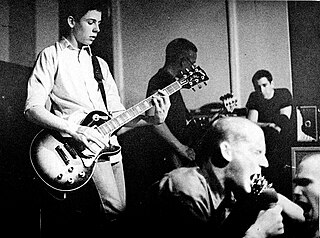 W
WHardcore punk is a punk rock music genre and subculture that originated in the late 1970s. It is generally faster, harder, and more aggressive than other forms of punk rock. Its roots can be traced to earlier punk scenes in San Francisco and Southern California which arose as a reaction against the still predominant hippie cultural climate of the time. It was also inspired by New York punk rock and early proto-punk. Hardcore punk generally disavows commercialism, the established music industry and "anything similar to the characteristics of mainstream rock" and often addresses social and political topics with "confrontational, politically-charged lyrics."
 W
WHipster or hepcat, as used in the 1940s, referred to aficionados of jazz, in particular bebop, which became popular in the early 1940s. The hipster adopted the lifestyle of the jazz musician, including some or all of the following: dress, slang, use of marijuana and other drugs, relaxed attitude, sarcastic humble or, self-imposed poverty, and relaxed sexual mores.
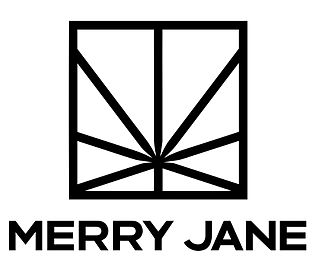 W
WMerry Jane is a cannabis-focused digital media platform launched by rapper Snoop Dogg in 2015, with media entrepreneur Ted Chung. The site features editorial content on the business and politics of the cannabis industry, original video series as well as a database for identifying cannabis strains and dispensaries.
 W
WPachucos are male members of a counterculture associated with zoot suit fashion, jazz and swing music, a distinct dialect known as caló, and self-empowerment in rejecting assimilation into Anglo-American society that emerged in Los Angeles in the late 1930s. The pachuco counterculture flourished among Chicano boys and men in the 1940s as a symbol of rebellion, especially in Los Angeles. It spread to women who became known as pachucas and were perceived as unruly, masculine, and un-American. Some pachucos adopted strong attitudes of social defiance, engaging in behavior seen as deviant by white/Anglo-American society, such as marijuana smoking, gang activity, and a turbulent night life. Although concentrated among a relatively small group of Mexican Americans, the pachuco counterculture became iconic among Chicanos and a predecessor for the cholo subculture which emerged among Chicano youth in the 1980s.
 W
WA promenade dance, commonly called a prom, is a dance party for high school students. It may be offered in semi-formal black tie or informal suit for boys, and evening gowns for girls. This event is typically held near the end of the school year. There may be individual junior and senior proms or they may be combined.
 W
WPunk ideologies are a group of varied social and political beliefs associated with the punk subculture and punk rock. It is primarily concerned with concepts such as mutual aid, against selling out, egalitarianism, humanitarianism, anti-authoritarianism, anti-consumerism, anti-corporatism, anti-war, decolonization, anti-conservatism, anti-globalization, anti-gentrification, anti-racism, anti-sexism, gender equality, racial equality, health rights, civil rights, animal rights, disability rights, free-thought and non-conformity. One of its main tenets is a rejection of mainstream, corporate mass culture and its values. It continues to evolve its ideology as the movement spreads throughout North America from its origins in England and New York and embraces a range of anti-racist and anti-sexist belief systems. Punk ideologies are often Leftist / Anti-capitalist and go against authoritarian and the Right-wing Christian ideologies.
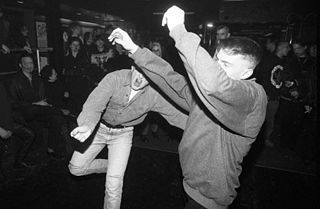 W
WRockabilly is one of the earliest styles of rock and roll music. It dates back to the early 1950s in the United States, especially the South. As a genre it blends the sound of Western musical styles such as country with that of rhythm and blues, leading to what is considered "classic" rock and roll. Some have also described it as a blend of bluegrass with rock and roll. The term "rockabilly" itself is a portmanteau of "rock" and "hillbilly", the latter a reference to the country music that contributed strongly to the style. Other important influences on rockabilly include western swing, boogie-woogie, jump blues, and electric blues.
 W
WThe scene subculture is a youth subculture that emerged during the early 2000s in the United States from the pre-existing emo subculture. The subculture became popular with adolescents from the mid-2000s to early 2010s. Members of the scene subculture are referred to as scene kids, trendies, or scenesters. Scene fashion consists of skinny jeans, bright colored clothing, a signature hairstyle consisting of straight, flat hair with long fringes covering their forehead, and bright colored hair dye. Music genres associated with the scene subculture include metalcore, crunkcore, deathcore, electronic music, and pop punk.
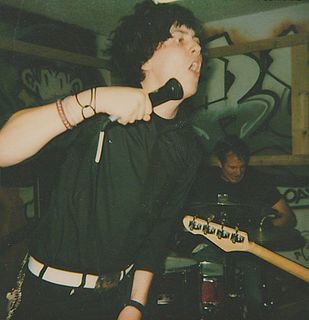 W
WScreamo is an aggressive subgenre of emo that emerged in the early 1990s, emphasizing "willfully experimental dissonance and dynamics". It was pioneered by San Diego bands Heroin and Antioch Arrow and developed in the late 1990s mainly by bands from the East Coast of the United States such as Orchid, Funeral Diner, Saetia, and Pg. 99. Screamo is strongly influenced by hardcore punk and characterized by the use of screamed vocals. Lyrical themes usually include emotional pain, death, romance, and human rights. The term "screamo" has been frequently mistaken as referring to any music with screaming vocals.
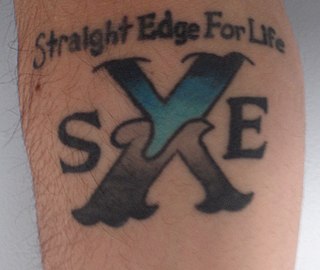 W
WStraight edge is a subculture of hardcore punk whose adherents refrain from using alcohol, tobacco, and other recreational drugs, in reaction to the excesses of punk subculture. For some, this extends to refraining from engaging in promiscuous sex, to following a vegetarian or vegan diet, and to not using caffeine or prescription drugs. The term straight edge was adopted from the 1981 song "Straight Edge" by the hardcore punk band Minor Threat.